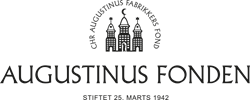© Hao Qin, Unsplashed
Popular Culture Imaginaries at the Museum
POP-IMAGINE - Popular Culture Imaginaries in the Museum explores the reciprocal relationship between popular media and cultural heritage by investigating popular culture imaginaries from the perspectives of creators, museum, and audiences.
Cultural heritage is a significant and enduring source of inspiration in our popular culture, as evidenced by TV-shows like Vikings, computer games like Assassin’s Creed, comic series like Vinland Saga, or novels such as the Kane Chronicles. These works get repurposed in a global transmedia ecology, where content is remixed and circulated in social media like TikTok or Instagram. Viking hairstyles trend on Instagram, and ancient hieroglyphs become a template for viral meme production. In this way, cultural heritage acquires new meanings and becomes a part of the modern vernacular of popular culture.
These heterogeneous imaginaries of popular culture shape the knowledge and expectations that audiences bring with them when visiting museums, defying historical facts and scientific evidence, and producing alternative epistemologies. It also works the other way around: oftentimes, contemporary exhibition design is inspired by the themes and aesthetics of popular culture.
POP-IMAGINE’s objective is to investigate the role that popular culture imaginaries play in shaping the modern museum, focusing both on processes of museum-making and museum-experiencing. It is our goal to develop theory and methods that can be used across different museal contexts. Our point of departure is an applied empirical investigation of the (trans)mediated contexts around two exhibitions at Nationalmuseet (The National Museum of Denmark) with strong connection to popular culture imaginaries: Vølvens Varsel and Ancient Egypt in The Department of Classical and Near Eastern Antiquities.
This project is a collaboration between The National Museum of Denmark and the University of Southern Denmark. It is sponsered by Augustinus fonden.

